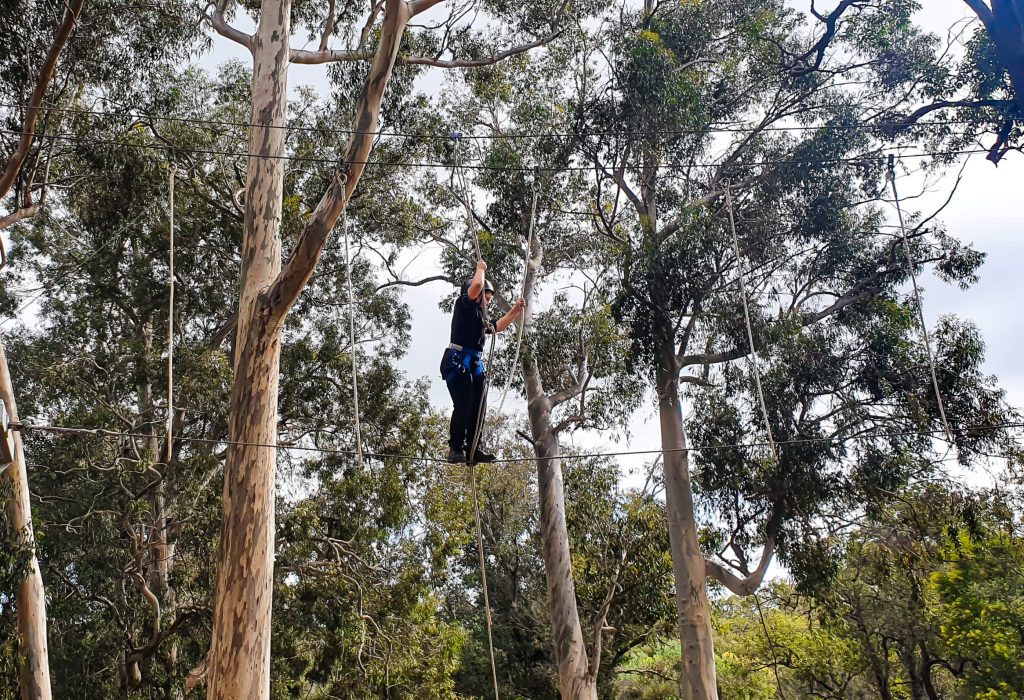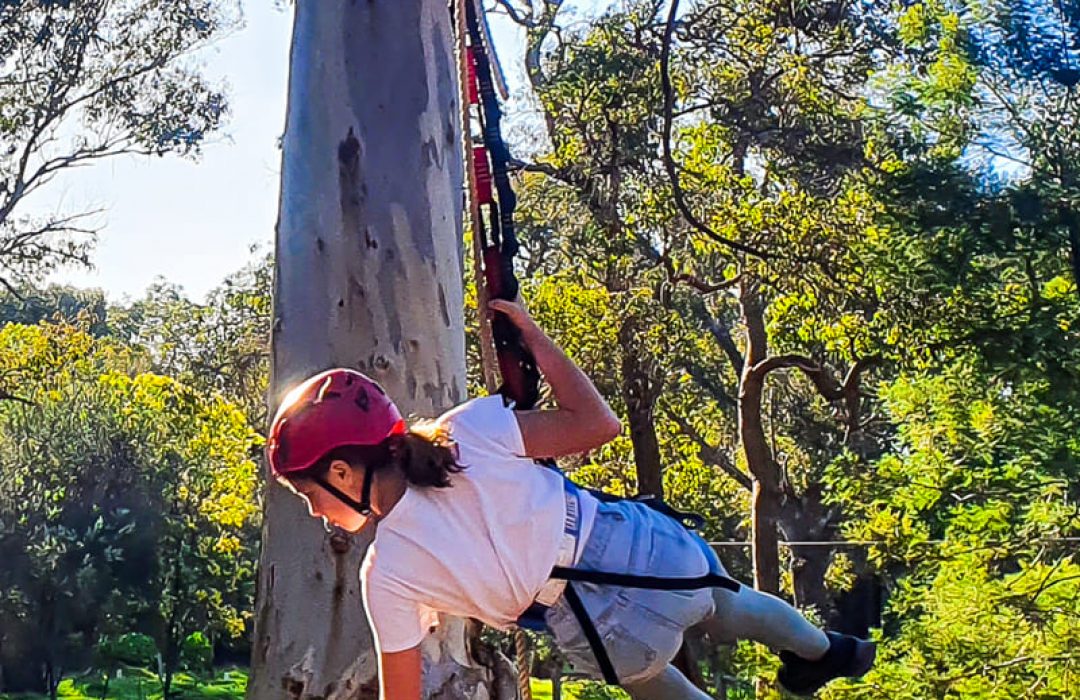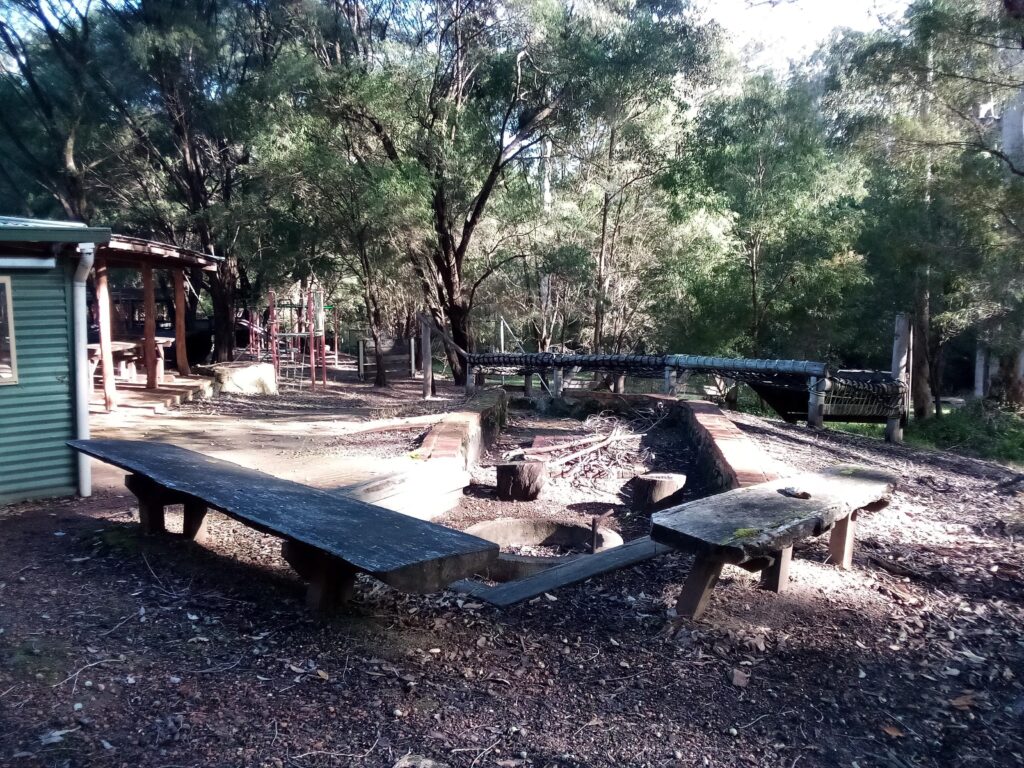High ropes courses are increasingly popular as a fun and challenging way to promote teamwork and social skills, especially among young people. These aerial obstacle courses, often nestled within the canopies of lush forests, require participants to navigate a series of elevated obstacles. The unique environment of a high ropes course encourages communication, cooperation, and problem-solving, making it an excellent tool for team building and activities designed to enhance social development.

The Thrill and Challenge of High Ropes Courses
A high ropes course offers more than just an adrenaline rush. While the initial appeal may be the excitement of walking across wobbly bridges or swinging from one platform to another, the true value lies in the social skills it helps develop. Whether it’s a group of schoolchildren on a day trip or a team of young athletes, the course challenges individuals to step out of their comfort zones, trust in their peers, and work together to overcome obstacles.
Encouraging Communication
One of the most critical aspects of navigating a high ropes course is communication. Participants must often rely on verbal cues and signals to guide each other through difficult sections of the course. This constant need for clear and effective communication fosters a sense of responsibility and mutual respect among participants.
For example, when a participant is unsure about their next move, they might seek advice from someone who has already completed that part of the course. This exchange of information helps build trust and reinforces the importance of listening carefully and expressing oneself clearly. The skills developed in these moments can be transferred to other areas of life, whether it’s working on a group project at school or resolving conflicts with friends.
Building Trust and Cooperation
Trust is another essential element nurtured on a high ropes course. The inherent risks and challenges of the course require participants to place their faith in each other’s abilities. This trust is often built gradually as team members encourage and support one another through each stage of the course.
For instance, if one participant struggles to cross a shaky bridge, others may offer words of encouragement or suggest different techniques. In some cases, participants might physically assist one another, such as holding a rope steady or offering a hand to help with balance. These actions reinforce the idea that success on the course is not just about individual achievement but about how well the team functions as a whole.
The cooperative nature of team building and activities like high ropes courses also extends to the planning and decision-making processes. Before beginning the course, groups often discuss strategies and assign roles, such as who will lead and who will bring up the rear. This collaborative approach ensures that everyone feels involved and responsible for the group’s success.
Problem-Solving Under Pressure
High ropes courses are designed to challenge participants both physically and mentally. The obstacles often require quick thinking and creative problem-solving, particularly when the obvious solutions don’t seem to work. This environment of constant challenge encourages participants to think outside the box and collaborate on finding solutions.
For young people, the ability to solve problems under pressure is an invaluable skill. On a high ropes course, they might need to figure out how to get across a gap without a clear path or how to distribute their weight evenly on a narrow beam. These challenges teach participants to remain calm, think critically, and work with their teammates to overcome obstacles.
Developing Empathy and Support
Empathy plays a significant role in the success of any team-building activity, and high ropes courses are no exception. As participants face their fears and push their limits, they become more aware of the struggles of their teammates. This awareness fosters a sense of empathy, as individuals realise that their teammates might be experiencing similar fears or doubts.
In moments of hesitation or fear, participants often turn to their peers for support. This support might come in the form of a reassuring word, a shared joke to lighten the mood, or a physical gesture like a pat on the back. These small acts of kindness can have a significant impact on the overall experience, making participants feel valued and understood.
The empathy developed on a high ropes course can translate to other social situations, such as helping a friend through a difficult time or understanding different perspectives during a disagreement. By learning to be supportive and compassionate, participants enhance their social skills and contribute to a more positive and inclusive environment.

The Long-Term Benefits of High Ropes Courses
The social skills and teamwork developed on a high ropes course are not just temporary achievements; they have long-lasting effects that can benefit young people in various aspects of their lives. These skills are particularly valuable in educational settings, where teamwork and collaboration are increasingly emphasised.
Enhancing Academic and Extracurricular Success
The problem-solving, communication, and teamwork skills honed on a high ropes course can enhance academic performance. Group projects, class discussions, and other collaborative activities in school become easier to navigate as students apply the skills they’ve learned. They become more comfortable taking on leadership roles, contributing to discussions, and working effectively with others.
Similarly, in extracurricular activities like sports teams or clubs, the ability to work well with others is crucial. The trust, cooperation, and communication skills developed on a high ropes course can lead to better teamwork, which in turn can improve the overall performance of the group. Whether it’s coordinating a play on the soccer field or organising a fundraiser, the social skills gained from outdoor activities for kids like high ropes courses are invaluable.
Preparing for Future Challenges
As young people grow and face new challenges, the social skills and teamwork experiences from high ropes courses provide a solid foundation. In future educational pursuits, careers, and personal relationships, the ability to work well with others, communicate effectively, and solve problems collaboratively will be crucial.
For example, in a work environment, these skills can help individuals navigate complex projects, mediate conflicts, and contribute positively to team dynamics. The confidence gained from successfully completing a high ropes course can also boost self-esteem, making individuals more likely to take on new challenges and strive for success.
Promoting Lifelong Physical and Mental Well-being
Engaging in outdoor activities for kids like high ropes courses also promotes physical and mental well-being. The physical demands of the course encourage participants to stay active, while the mental challenges help develop resilience and a positive mindset. These benefits contribute to a healthier lifestyle and a greater appreciation for outdoor activities.
Moreover, the sense of accomplishment that comes from completing a high ropes course can have a lasting impact on self-confidence. This boost in self-esteem can encourage young people to pursue other challenging activities, whether in sports, academics, or personal hobbies.

Conclusion: The Power of High Ropes Courses
In summary, high ropes courses are powerful tools for enhancing social skills and promoting teamwork among youth. Through communication, trust, cooperation, problem-solving, and empathy, participants develop skills that are valuable not only in the short term but throughout their lives. The challenges faced on a high ropes course prepare young people for future success in school, extracurricular activities, and beyond.
The benefits of team building and activities like high ropes courses extend far beyond the immediate thrill of the adventure. They foster a sense of community, build lasting relationships, and equip young people with the tools they need to navigate the complexities of life. As such, high ropes courses are an excellent choice for anyone looking to develop social skills, strengthen teamwork, and enjoy the great outdoors.
